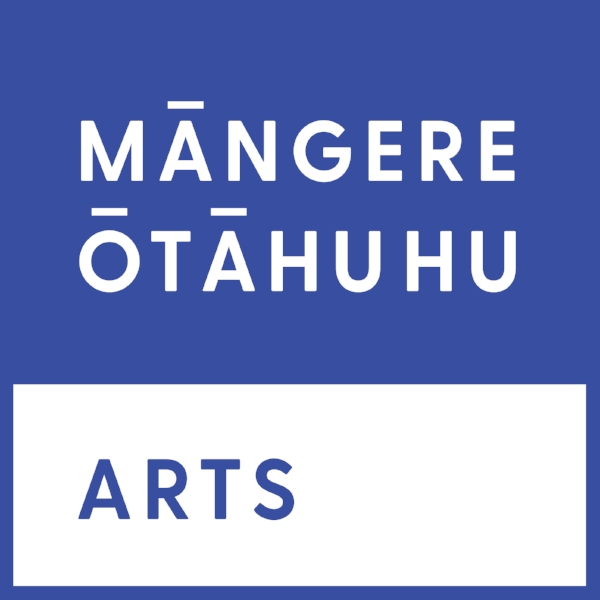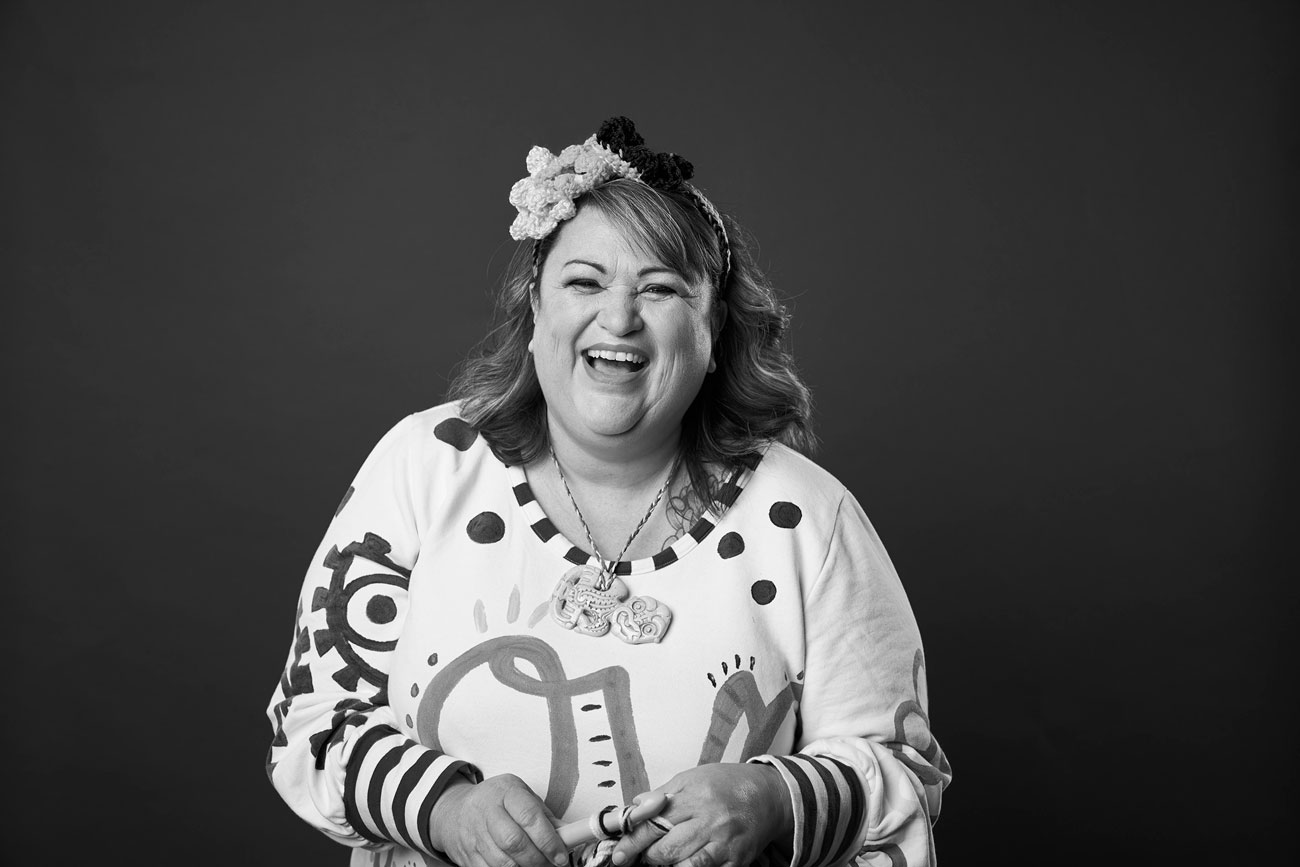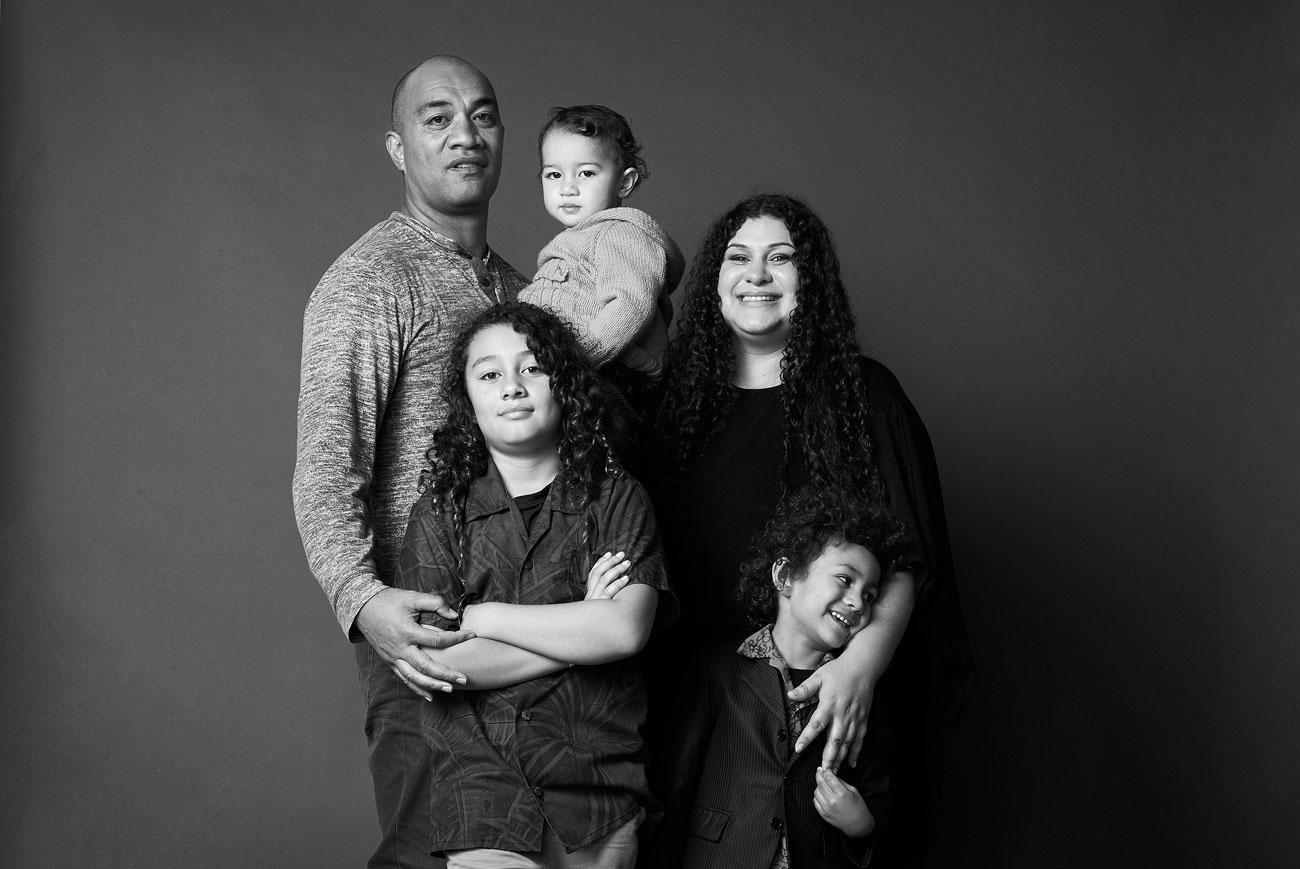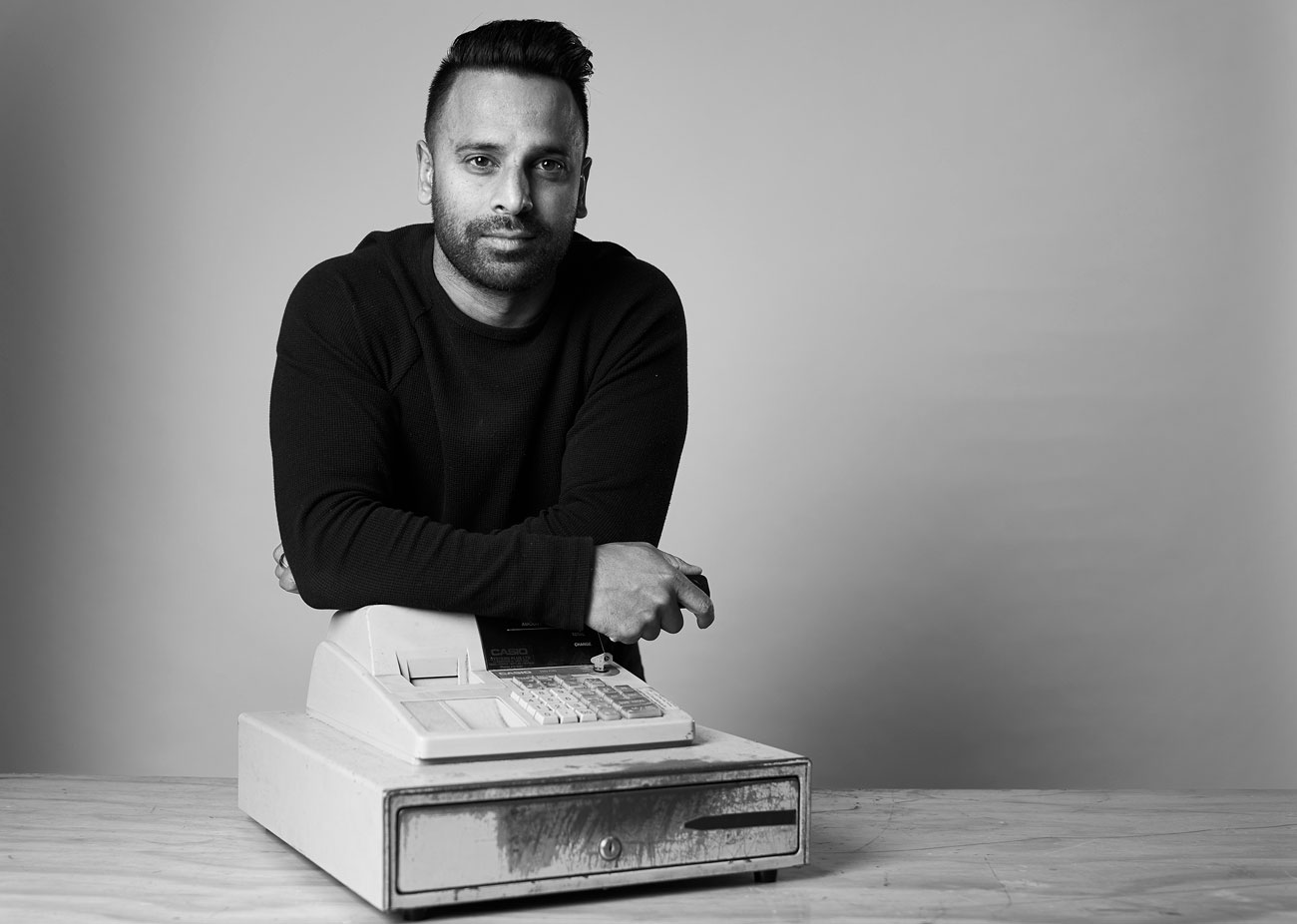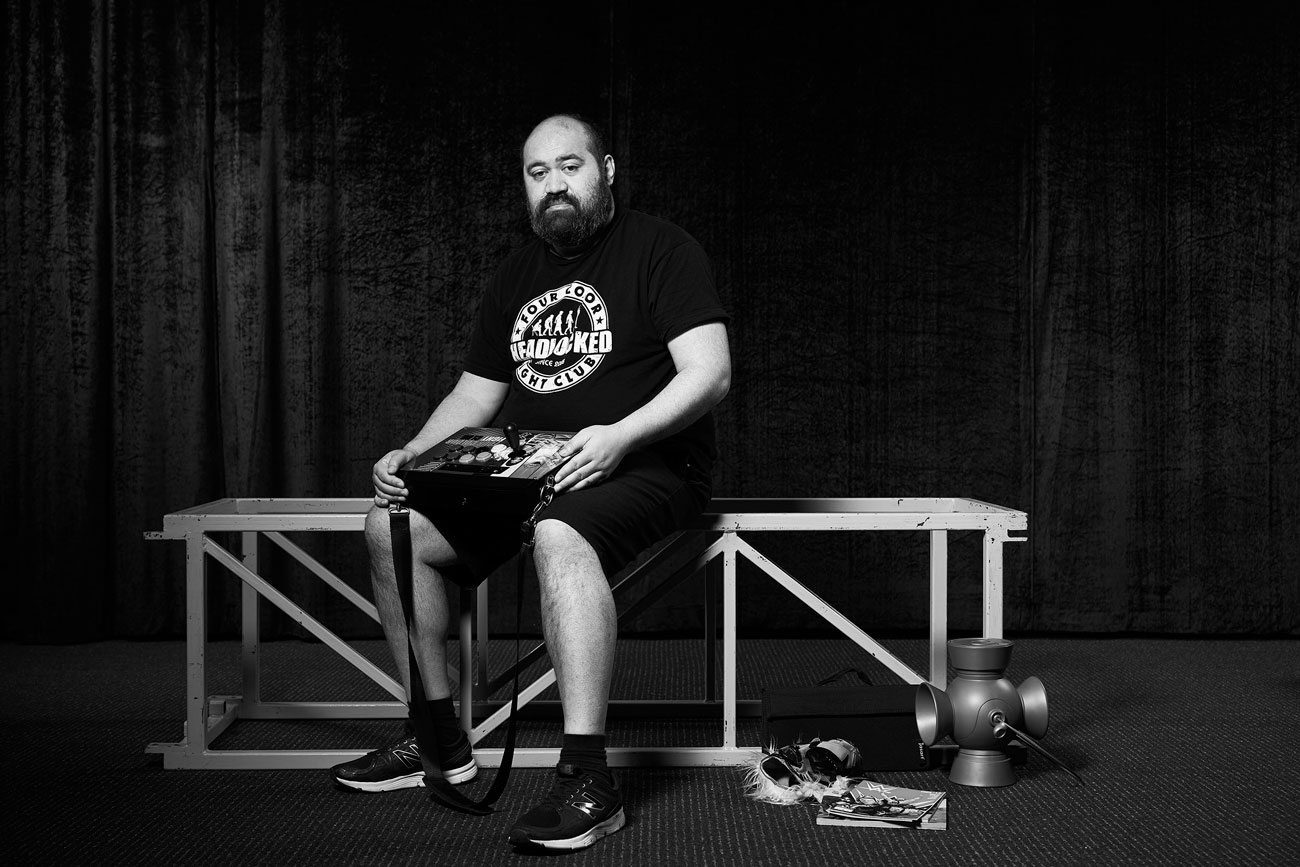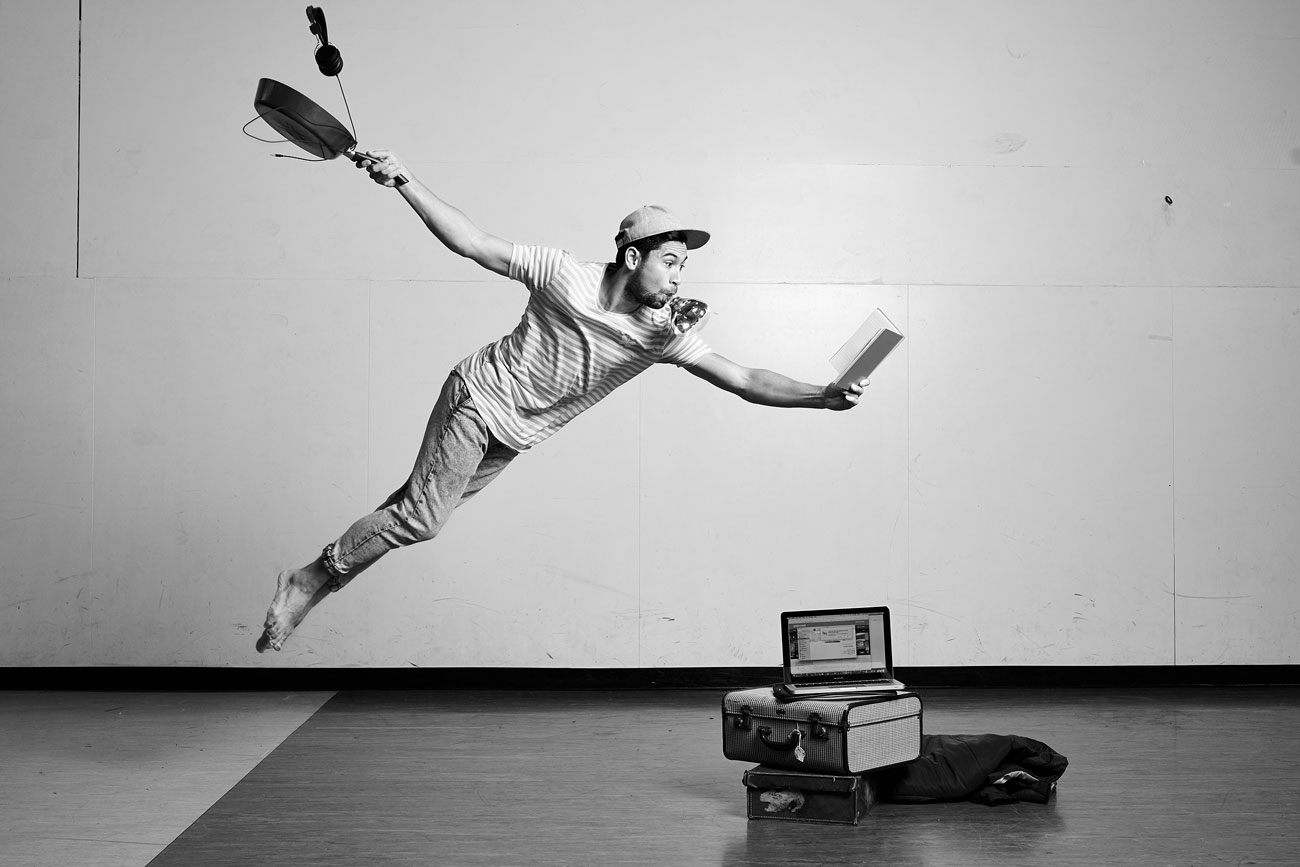"BEING IN SOUTHSIDE HAS REMINDED ME WHY I LOVE WHAT I DO"
– Faanati Mamea
Mapping Creative Hustle is a series of interviews with creative entrepreneurs connected to the Māngere Ōtāhuhu area. The interviewed were conducted by Ema Tavola with portrait photography by Vinesh Kumaran.
In your own words, what do you do for a living?
Well, I’m a Photographer/ TV Cameraman. My main bread and butter is TV work; I work as a DOP (Director of Photography) for various production companies helping them produce different TV shows. On top of that I’m creating more content for different brands and organisations, under my own company Mamea Media Ltd, which is pretty cool.
Why do you do what you do?
What I do is exciting! Every day is a different; you could be filming in Vietnam one day and back home in South Auckland the next. You’re always meeting different people, you’re hearing different stories – inspiring stories – a lot of people that I shoot are really interesting. And, it’s often people that I’d never thought I would meet, people from outside of my community. But there’s also fun in meeting the ones who are within my community, particularly now that I’ve moved back to Māngere. I’m re-visiting the old people and the old places I used to know; it’s quite cool to come back home.
Have you had an epiphany that has led you to this path in life?
Nah! To be honest, I’m quite lucky to be where I am right now. When I was 19, I was quite lost and had no idea what I wanted to do; I used to study Travel & Tourism but I don’t even know why I did that course. At the end of it I interviewed for this Work USA programme, and got a job at a ski resort in the US working in the restaurant. I flew over with a hundred bucks that my Mum had given me – that’s all I had. At the resort, they had a Lost & Found policy that meant that anything unclaimed after two months, the staff get to keep, so that’s how I scored my first camera – a little point-and-shoot, film camera. I went around shooting trees, people skiing, snowboarders, and thought, ‘man, this is pretty cool’; getting the film developed was buzzy too.
When I came back, I had no career, so I started working in factories and warehouses whilst also researching books about photography. I had no idea how to get into it, but from hanging out with my childhood friend Matthew Salapu at OMAC, I was always around these creative people. Noma
(the then Manager of OMAC) sent me an email about this TV show called Pacific Beat Street, who were looking for someone to train as a cameraman.
I remember sending in my application during my lunchbreak at the warehouse, and didn’t think anything of it until Stan Wolfgramm (Creator of Pacific Beat Street) gave me a call to arrange an interview.
I remember feeling like I’d never get the job over people who had studied at University, or had experience in film and television, but after looking at some of my images, Stan said he appreciated that I was keen and had talent, so that’s how I got my first job in TV.
Filming for Pacific Beat Street was all about the Pacific community. As a South Auckland boy whose thinking didn’t extend much further than Māngere bridge, meeting and filming so many different people, and listening to their stories, made me realise that there’s so much more to the world than where I grew up.
If there was one thing you could outsource to help you do more, or be more effective, what would it be?
On the business side, it’s the sales part. In terms of the production side of things, it’s a matter of hiring the right people who have the skillset you need, like script writers, editors and directors. Being able to engage skilled professionals to help devise strong pitches is pretty cool.
What is something you wish you could do/find locally that would support you as a creative entrepreneur?
I quite like the idea of creative hubs. I’m really useless at going to gallery openings, even local stuff – I’m hopeless at getting out there! But I quite like the idea of a space, where photographers, newbies and professionals, can come together to swap skills, build networks, even just chat about creative stuff, whether you want to learn or share a new idea, or even pitch a project.
Working independently can be lonely! All your thoughts are just within these four walls and whilst partners are good for support, you just want to bounce your ideas off other creative people.
Growing up in this industry, I always found that us PIs (Pacific Islanders) would find it hard to get our hands on the latest equipment. I would see other guys shooting on really expensive gear and later learned about some key networks and deals that made that possible. It would be cool to have a place for people who are keen on photography, and professionals who are already in the industry to bring their gear to share tips and skills, almost like a ‘field day’ for creative people! That way we’re not having to rent equipment for $1000/day just to have a play. It could be like a monthly event; if you want to learn to do portraits, learn from a portrait photographer and so on. It’s like giving young ones a good jumpstart to their careers, because it can be a real block to not have the right camera or skills.
What do you wish you could change in societal attitudes that would enable you and other creative entrepreneurs to thrive?
I’m really focused on social media especially Instagram, because it’s so important for my business. Having an online presence is important whether it’s a website, blog or whatever. Instagram works for me because it’s a quick way for people to view the sort of work you do.
The funny thing about Instagram though is that it’s so saturated with the same filters and everybody’s work starts to look the same. The thing I’ve found that is missing, is the story telling aspect; there’s no real connection with the viewer. My friend Adrian Malloch would say, ‘real stories, real people’, and you can’t put an Instagram filter on that. For me I want to show the rawness of my subject; it’s about them and you’re just there to capture it.
There’s only a small bunch of photographers whose styles have become truly recognisable; when you look at their images, you know who took them. A lot of people just follow trends, but the true photographers will always reflect their personal style; they’re not fazed by trends.
What do you love about living and working in the Māngere-Ōtāhuhu area?
I grew up in Māngere but was born in Sāmoa; we came here at the end of ’88 – I was about five. The first place we stayed was Cape Road in Māngere, with my Granddad. Growing up, that’s pretty much all I knew, the Southside.
I love the rawness of Māngere, and all of Southside. People have this bad idea of the South, but they don’t know how creative people are in South Auckland. Especially our PI people. And I think that comes from always being hungry. For me I know the struggle that I came from, the struggles my parents went through to get us to New Zealand and to get us all through school. I believe if you always have that struggle in the back of your mind, you’ll always be pushing forward to do better for you and for them.
After years and years of living in areas like Sandringham, Mt Eden and Grey Lynn, my partner Jo and I wanted to buy our first home and definitely couldn’t afford to buy in Central; we realised we had to be realistic so planned our move back out South. We had no choice!
Before coming back to the Southside I never really gave much thought to any creative ideas of my own, I guess I was too busy learning my craft. But when I came back, I started to photograph my own people and my family creating the memories that I want. Right now I’m reconnecting with where it all started; the struggle, and the stories I grew up with. And they’re my stories, no one else’s stories. So, for me as an artist, it was almost like bringing me back to earth, a process of fulfilling what I was missing inside of me.
Would your work or practice be different if you lived somewhere else?
Being in Southside has reminded me why I love what I do. The most exciting thing about my craft is learning about how others live. I think the better we understand each other no matter where you are in the world.
What inspires you to keep going when the going gets tough?
One powerful thing is talking to others. It gets really dangerous when business is quiet and you’re at home doing nothing, you start to doubt yourself and have some real negative thoughts. It’s really good to reach out to other people, even if it on social media, bounce ideas off each other and shoot something for fun. It’s just being around other creatives, something will spark.
I remember when my first TV show Pacific Beat Street ended, I went from full-time work, living in a production house, rent free for two and half years, to freelancing for the first time and not knowing anyone in the industry... it was a struggle to find work. I was really lucky that I kept in touch with one of the Directors, Carolyn Sylvester, who became a good friend. She pretty much got me on most shows she worked on and I pretty much built my way up from there. Even till this day we still work together on some cool as TV shows together.
One lesson my parents always taught me was to always be kind to people you meet and work hard. So, this is dedicated to them.
